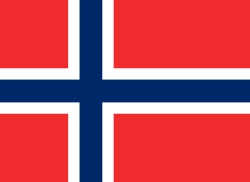SAVE THE OSLO FJORD
What is happening with the Oslofjord?
The Oslo Fjord in southeastern Norway faces severe environmental challenges due to human activities, particularly pollution from agriculture and urban areas. Nutrient runoff from farms, especially nitrogen and phosphorus, has led to harmful algal blooms, which deplete oxygen levels and create "dead zones" where marine life struggles to survive (Eutrophication). Overfishing, pollution, and invasive species like Pacific oysters have further threatened the fjord’s biodiversity, leading to a sharp decline in species like cod and lobster.
Urban pollution also plays a significant role, with untreated wastewater, stormwater runoff, and plastic pollution harming marine life. Heavy rains often cause sewage overflows, worsening the eutrophication problem, while microplastics from improper waste disposal disrupt the ecosystem. Despite ongoing efforts to reduce agricultural runoff, improve wastewater treatment, and manage pollution, the Oslo Fjord remains vulnerable and urgently needs continued restoration and protection to preserve its unique marine environment.
What can you do to help?
Human urine presents a valuable opportunity to reduce environmental pollution and protect ecosystems like the Oslo Fjord. By adopting urine diversion systems, we can repurpose this nutrient-rich resource instead of letting it contribute to pollution. Urine contains high levels of nitrogen and phosphorus, which, when improperly managed, flow into waterways and fuel harmful algal blooms that deplete oxygen and damage marine life. Treating urine as a resource instead of waste can mitigate these impacts, support sustainable agriculture, and improve wastewater management.
One effective method is urine diversion, where urine is separated from other waste and collected for recycling. This allows the nitrogen and phosphorus to be used as natural fertilizers rather than contributing to nutrient pollution in rivers and oceans. By replacing chemical fertilizers with treated urine, farmers can nourish crops in a sustainable way while preventing nutrient runoff, which often leads to eutrophication. This reduces the impact of agriculture on water quality and helps protect aquatic ecosystems.
In addition to its agricultural benefits, urine diversion can relieve pressure on wastewater treatment systems. When urine is managed separately, it reduces the overall volume of wastewater, lowering the risk of untreated sewage being discharged into water bodies during storms or system overflows. This helps minimize nutrient-rich waste entering ecosystems like the Oslo Fjord, further protecting them from pollution.
Moreover, nutrient recovery from urine promotes a circular economy, where human waste is transformed into a valuable resource. By turning urine into fertilizer, we create a sustainable cycle that benefits both agriculture and the environment. Raising public awareness and encouraging the widespread adoption of urine recycling systems can drive positive change, reducing nutrient pollution and safeguarding vulnerable ecosystems for future generations. Now is the time to embrace these innovative solutions and contribute to a cleaner, healthier planet.
The Golden Watering Can
The Golden Watering Can represents an innovative approach to recycling human waste and improving agricultural sustainability while addressing environmental pollution challenges. It is basically a watering can where you can sit on to make your necessities and then mix them with water, after it jut put the lid on and be ready to use it in you crops!
Why use the Golden Watering Can and Golden Water?
- Save money on fertilizer.
- Transform your garden into a lush assembly of healthy plants.
- Save our streams, rivers, lakes and fjords from nitrogen pollution.
- Enjoy a lifestyle more connected to your environment, its ecosystems and the balanced and eternal cycles of life.
- Enjoy a award-winning design.
Save money and become more self-reliant
The price of organic fertilizer has more than doubled since 2023. Along with nitrogen fixing-, accumulator- and biomass-plants your golden water is a great addition to soil and plant health produced within your Permaculture system.
What is Golden Water?
Golden water is basically your urine diluted with water. The end result, at the ratio 20 parts water to 1 part of urine makes for a solution that will benefit most plants in your garden.
This weak solution is not even smelly after just minutes after application. When experimenting with this in our private gardens we see incredible growth and increased yields. Ornamentals like Roses, Creeping Thyme and all trees have received this treatment with very encouraging results. We see more and prolonged periods of flowering and even a second cycle of flowering.
We have concluded that it is because this way of fertilizing. We have avoided using it in the vegetable garden but use it on perennial plants after the yields of that year have been harvested. We can recommend using golden water in your garden to give compost piles, soil and plants the nutrients they need.
Natural cycles
We, humans, are a part of nature, not alien to it. However, we are the only species that allow our urine and feces to be deposited into the water we ourselves swim in, drink and enjoy. This is a design error that we could benefit from transforming.
Join in and support this movement and spread this vital consciousness of natural cycles thinking!
Save our water sources
Excess nitrogen is currently the greatest hazard to biodiversity and balanced life in out waters. This is due to wrong farming practices but also old fashioned sewage treatment. In Norway the focus of sewage treatment has been, and still is, phosphorus.
The nitrogen from our urine is rarely captured and is spilled into our waters causing the flourishing growth of algae and its detrimental effects on aquatic biodiversity. Even humans and our pets face a health risk when swimming in such waters. This is getting more and more common. Your habit of using urine where it is supposed to go can be of great help.
Idea and form
The gold jug is an environmental- and design-awarded product for the ecological cycle in everyday life. Something to sit on in the bathroom. Practical and easy to carry.
Stylish with the highest quality!

